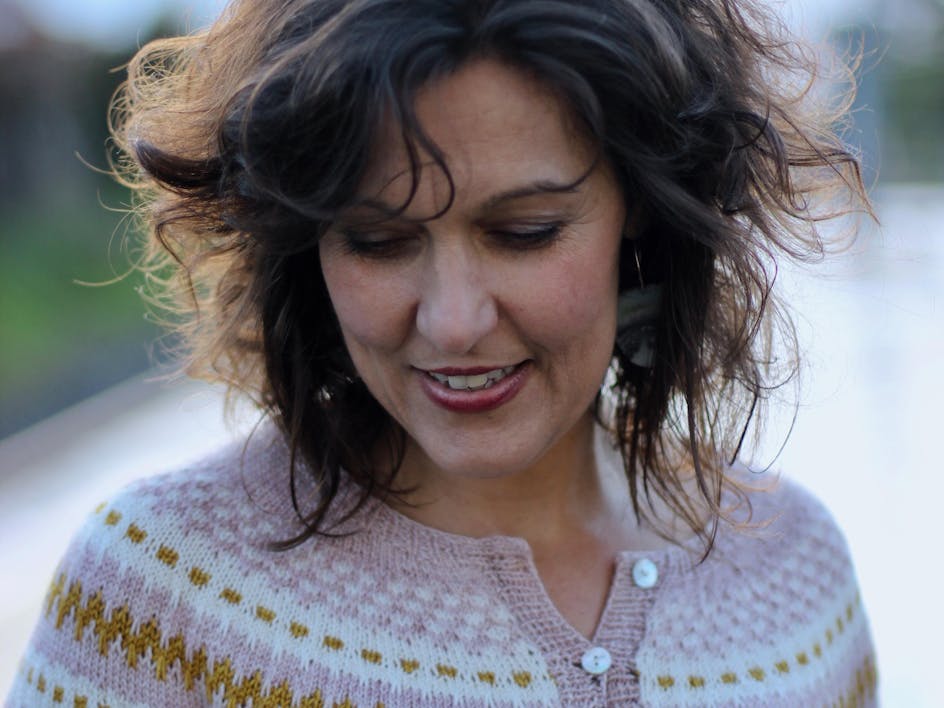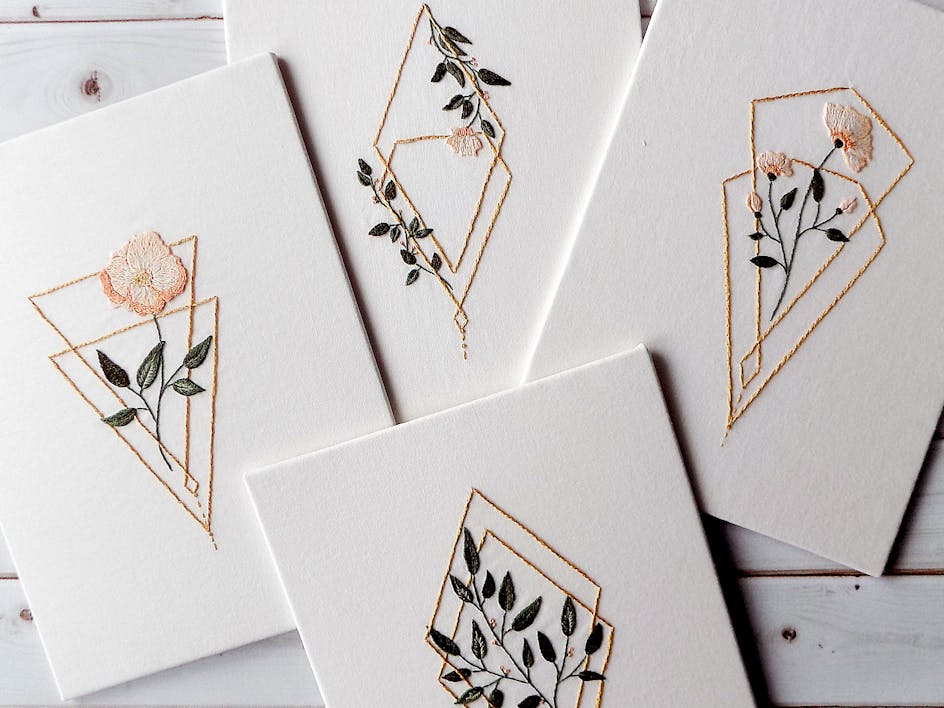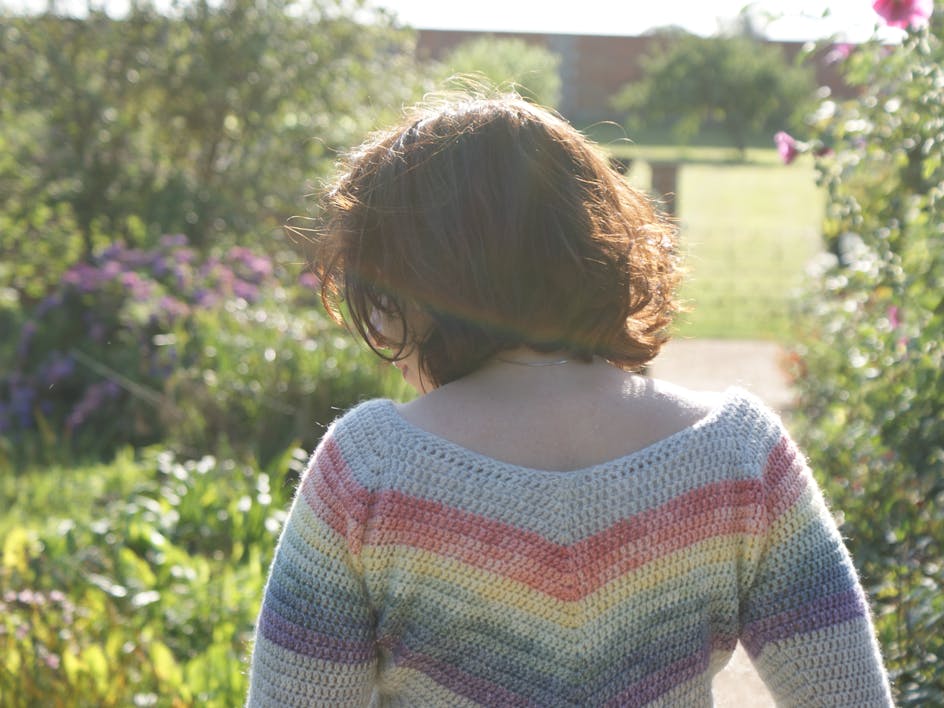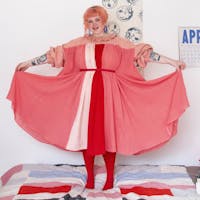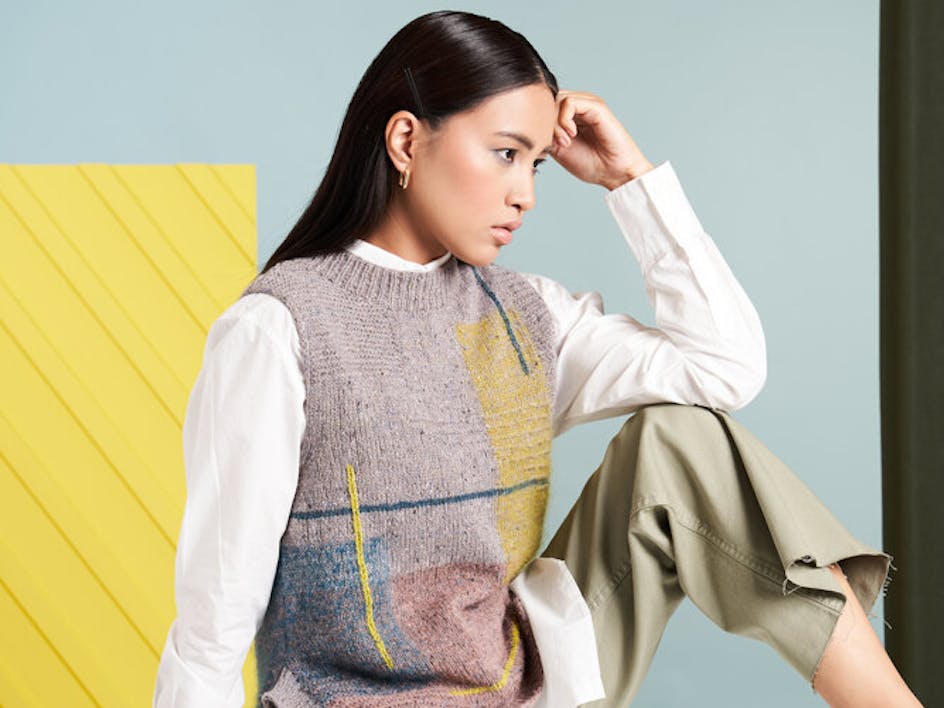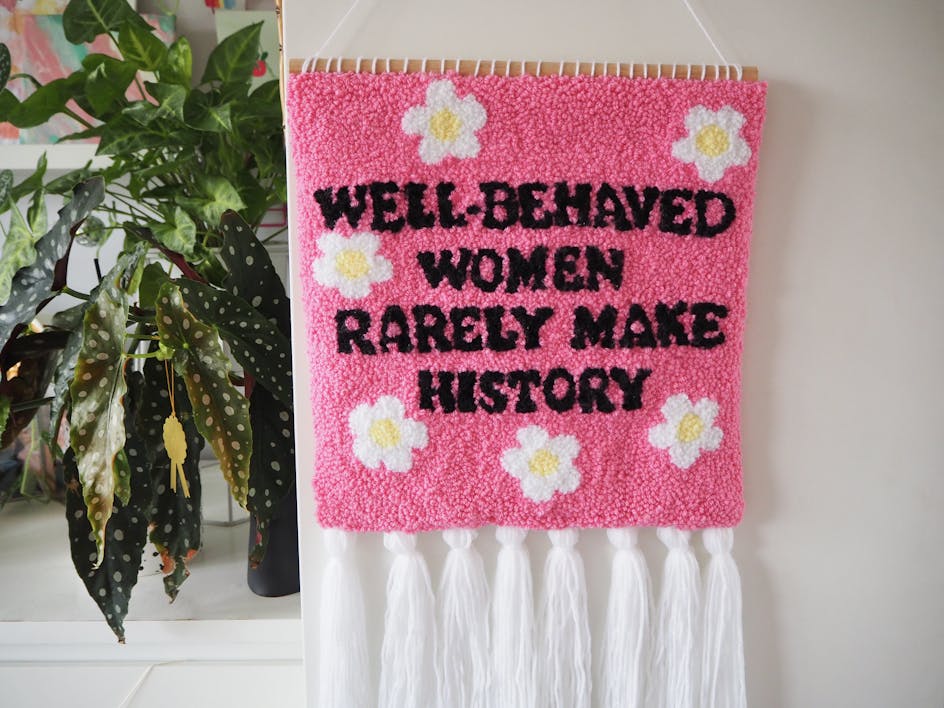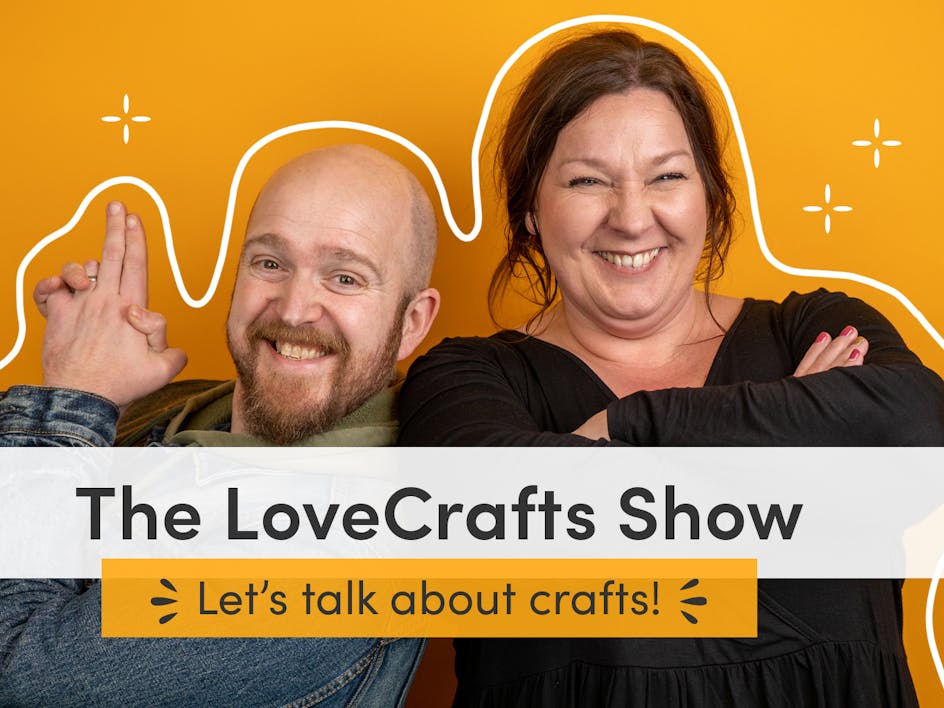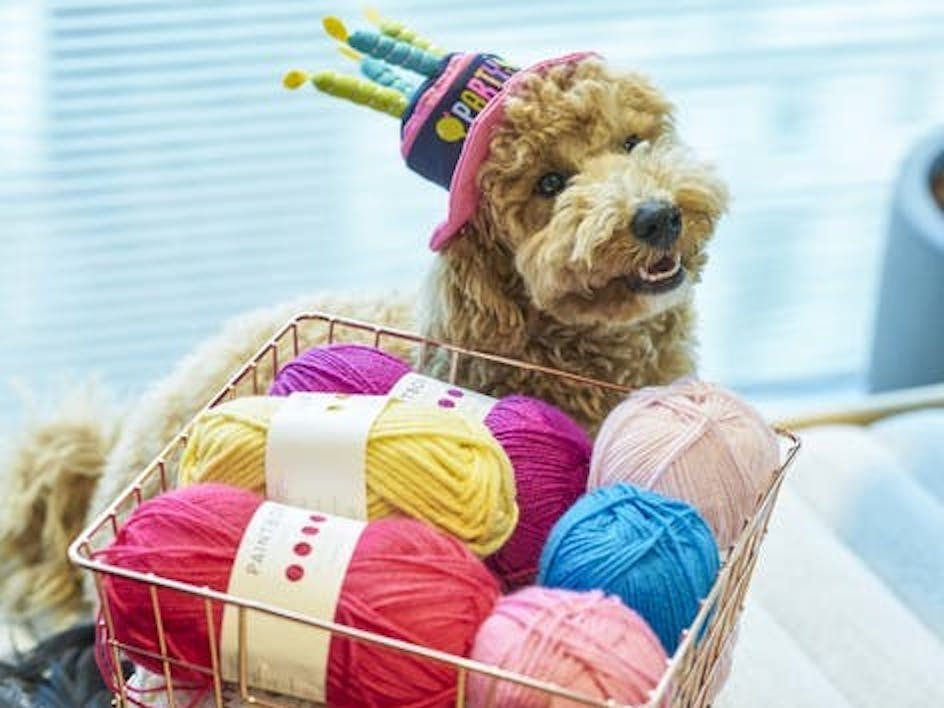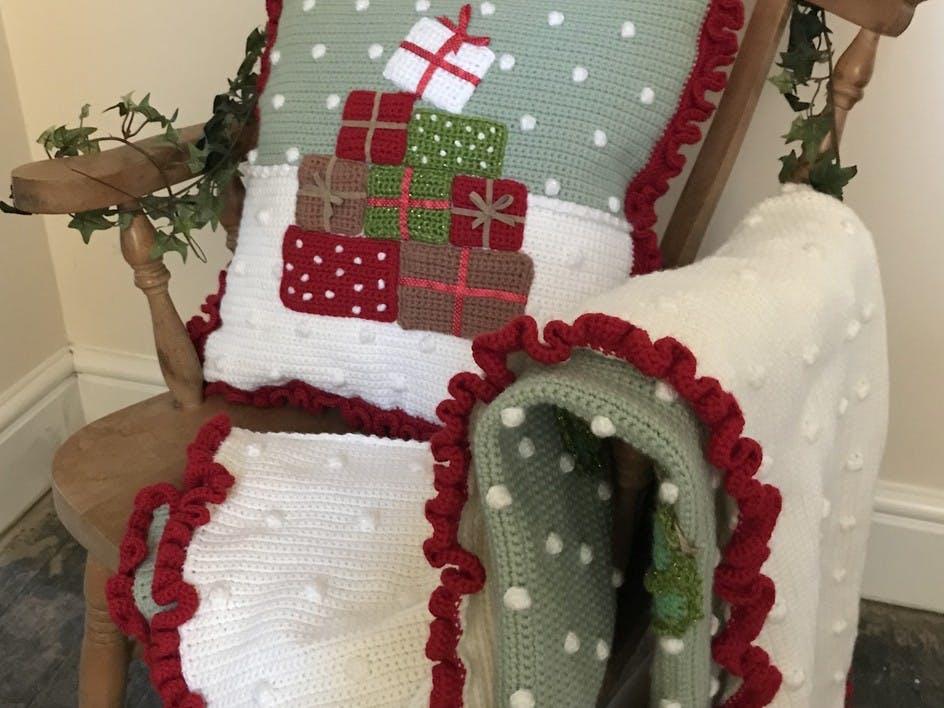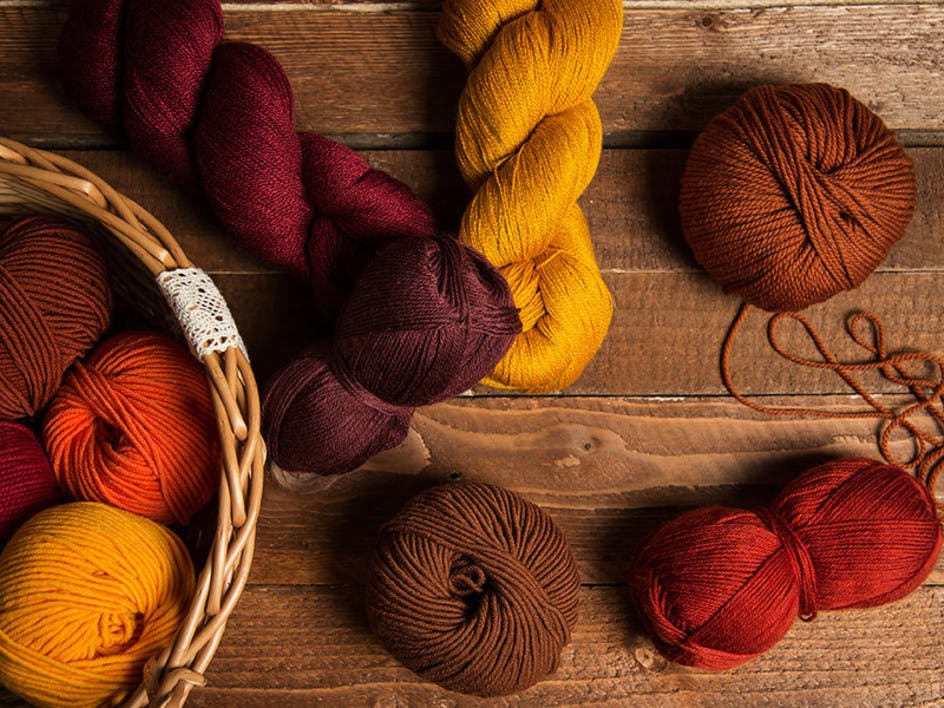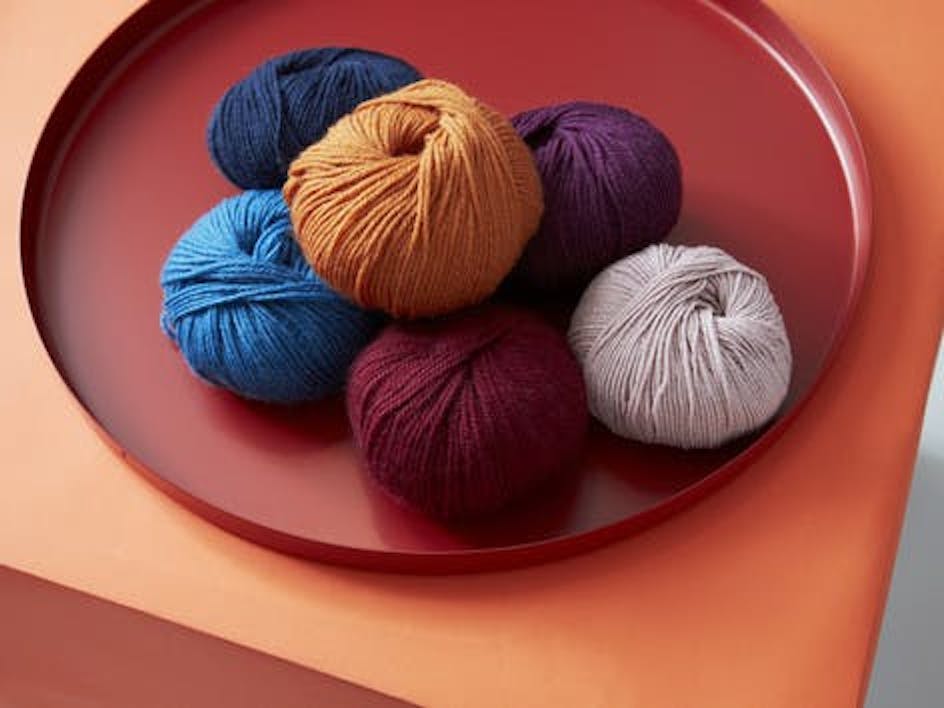“I want to clothe my fat body in something beautiful and outrageous” - Lydia Morrow on inclusive ethical fashion
Published on 30 July 2020 6 min readLydia Morrow is a fat sewist who sews and crochets loud and fun clothes in her personal style. Here she tells us more about her personal maker journey and what the true cost of a handmade wardrobe really is.
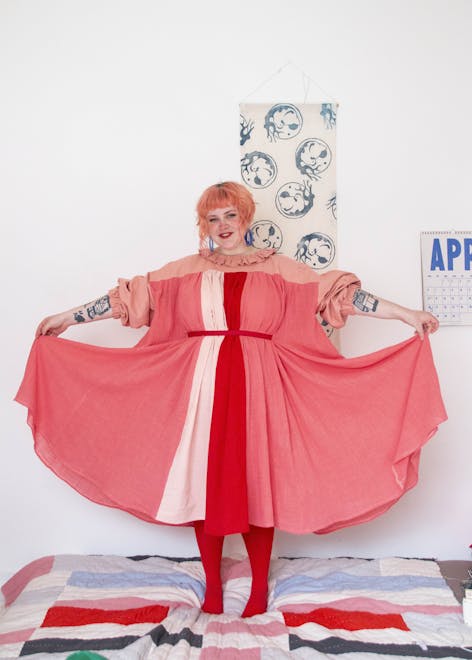
...to create something beautiful, feels empowering and it is a joyful experience to wear the things that feel the most ‘me’.
Hiya! My name is Lydia Morrow but you may know me better as @whatlydiamade, I’ve been very active in the ethical fashion and sewing communities on Instagram for a few years now, nowadays I mostly sew for myself - the more pink the better!
Fat inclusion and ethical fashion
I’ve been sewing, knitting, and wearing second hand for as long as I can remember. Fashion has always been a creative outlet for me, my family encouraged standing out so I was lucky enough to never feel ashamed about being different. I gave birth to my son shortly after graduating from art school and quickly grew about 4 dress sizes larger. During my degree I had been teaching myself how to make clothes and had started to become more aware of the true cost of garment making. As a relatively financially privileged person, I realised I wanted to rebuild my wardrobe with clothes from ethical sources. In practice, however, this was harder than I expected.
For a long time, crocheting, knitting, and sewing my own clothes has seemed like the only way I could get the pieces I wanted. Even when I did have the money saved to get a big special purchase, it felt like nobody in the ethical fashion world wanted to sell to me because of the size of my body. I want to clothe my fat body in something beautiful and outrageous - I don’t consider it to be a halfway house to a ‘better, thinner me’. Making things for myself has been an amazing option, having a way to engage with my measurements without judgement, to create something beautiful, feels empowering and it is a joyful experience to wear the things that feel the most ‘me’.
The true cost of a handmade wardrobe
In the last few years we have opened up the discussion on fat-inclusion in the sewing and ethical fashion world, but what about the other big barrier to these things - cost? We all know that the cost of ethical fashion is, well, ethical, if we want to pay the makers fairly. But we live in a society where many of us, the consumers, are still paid unethically and can’t afford to participate. What happens when our pay is too low to afford to pay our garment workers? People like to position sewing or handcrafting as a lower cost alternative to buying slow fashion, which it is, but it is not inexpensive. Materials, equipment, patterns, and time to learn are all valuable things that aren’t universally accessible.
I’ve already established that I am one of the people who does have disposable income. This is highly likely to mean that I am also a person with disposable leisure time and energy. Would sewing my own clothes be as possible without my class privileges? Recently I have felt that the conversation around fat folks sewing for empowerment has been failing by omission, it still feels like we have a lot of work to do when it comes to making people feel welcome and understood in our fashion and sewing communities.
We know by now that fat people are more likely to earn less than thin people, this is a problem when we consider cross referencing the class issue with crafts - sewing is empowering to fat people, but at the same time fat people are statistically less likely to be in a position where fitting sewing into their lives is easy. Now consider other intersections like race and ability - the experience of fatness is not singular. On a personal note, my disability has meant I haven’t been able to sew in a month and I already feel the worry that I am falling behind the sewing community because I haven’t been able to produce as much.
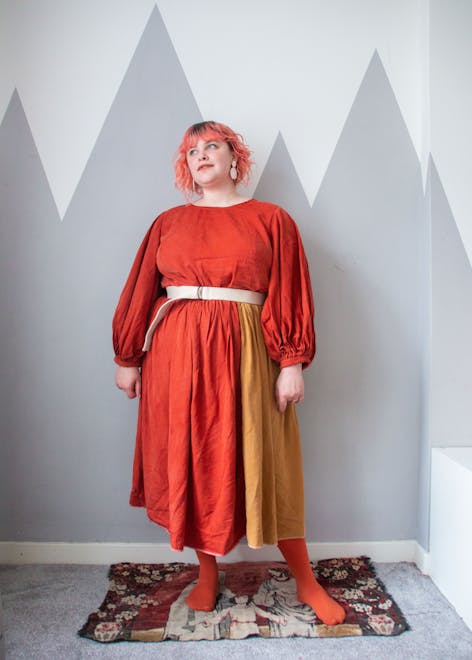
...it still feels like we have a lot of work to do when it comes to making people feel welcome and understood in our fashion and sewing communities.
In the past, sewing your own clothes was often a necessity for the working class, but today we aren’t raised with the same skills from a young age. Learning to sew can be easy, but in many ways it’s like taking a part time course, would you expect someone who is working double shifts or multiple jobs to find it accessible to add that to their workload? While many do, it still seems to me that the middle class sewists such as myself who have time to take their time, document their process, and spend a lot of time sharing on social media are the ones who get recognised and ‘empowered’ more through this work.
Ethical fat fashion - where do we start?
Environmentally friendly materials are expensive, spending time searching out second hand ones is labour-intensive. We need to see and acknowledge this issue when it comes to crafters who share their poly/acrylic works, understand they may not be able to buy that local hand dyed wool or linen, and try to find creative ways to improve access to our crafts and materials. I don’t have many answers but something I have been seeing develop in the ethical fashion world has been the pay it forward idea of contributing extra money to give access to people who can’t afford things, whilst still paying the creators. Slow fashion business Alice Alexander and knit designer Jessie Maed Designs are places I have seen this model successfully connect lower income people to fashion and craft. As in every area we need to realise we have a long way to go to make the crafting community truly inclusive, if we want to see it become empowering to fat people, we need to consider all fat people and it shouldn’t stop there.
Basically, support fat sewists, support disabled sewists, and Black sewists, and those who intersect at those junctures with your likes and follows and patreon subscriptions and find ways to keep the sewing community a true community that supports each other to make sure that this empowering creative process is truly accessible to those who want to participate!
